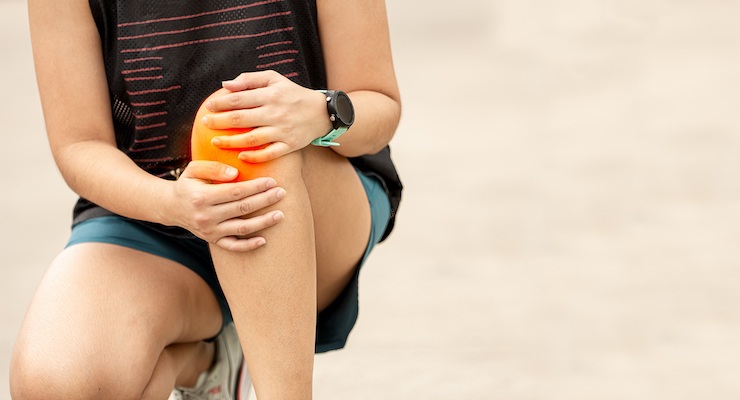Market Updates, Research
Curcumin Extract Shows Benefit, Reduces Analgesic Use in Osteoarthritis Patients
In a group of 101 OA patients, improvements were seen in both self-reported pain and performance based metrics.

By: Mike Montemarano
Associate Editor, Nutraceuticals World

Supplementation with a curcumin extract marketed by DolCas Biotech as Curcugen was linked to multiple positive outcomes in a pool of 101 osteoarthritis patients in a new double-blind, randomized, placebo-controlled trial published in Nutrients.
Specifically, patients who took the extract, which is standardized to contain 50% curcuminoids, saw improvements in performance-based metrics, reductions in self-reported pain, and reported that they were using pain relieving medication significantly less than their counterparts in the control group.
Osteoarthritis (OA) is a disease of the whole joint, comprising structural alterations in the articular cartilage, subchondral bone, ligaments, capsule, synovial membrane, and periarticular muscles. While many studies in the past have found curcumin supplementation to be helpful in cases of arthritis, few have actually included functional assessments of joint performance to reduce evaluation biases.
So, the authors included performance-based testing, in addition to other measures such as the Knee Injury and Osteoarthritis Outcome Score (KOOS), knee pain ratings, Japanese Orthopedic Association Score for Osteoarthritic Knees (JOA), and PROMIS–29, a quality-of-life assessment.
When it came to more subjective measures of pain, the authors of the study noted that KOOS data showed a statistically significant improvement – KOOS scores averaged out to 11.98 for the curcumin group, well above the average score of 5.52 seen in the placebo group at week 8. The JOA assessment, which is observer-led, also showed clinically-meaningful differences in the curcumin group compared to placebo.
Noteworthy to the investigators was the fact that in the group receiving the 500mg twice-daily supplement, 19 of the 51 were able to decrease their analgesic medication by the endpoint of the study eight weeks later, compared to only six participants in the equally-sized placebo group (at baseline, 49% and 53% of participants in the placebo and curcumin groups respectively took pain relieving medication).
Importantly, the authors also noted significant differences between the two groups on performance-based metrics. Compared to the placebo, curcumin supplementation was associated with significantly greater improvements in a timed up-and-go test, a six-minute walk test, and scores in JOA, which involves scoring based on observations of walking ability, stair climbing, joint function, and pain. No significant differences were observed for the 30-second chair stand test or the 40-meter fast-paced walk test, however.
“The results of this trial identified a standard level of translatability to larger audiences, which compares very well with other studies in the area of knee joint pain. The data has been obtained for Curcugen to identify it as a promising, well-tolerated, and naturally-derived joint-support option,” said Adrian L. Lopresti, PhD, principal investigator of the study.
The overall blend of natural turmeric constituents is vital to Curcugen’s formulation, Dr. Shavon Jackson-Michel, director of medical and scientific affairs for DolCas Biotech, said. “In contrast to certain generic curcumin products, Curcugen’s unique formulation preserves the original complex of curcuminoids, essential oils and polar resins within a natural matrix. These naturally-occurring constituents synergistically increase curcumin bioavailability and, as supported by this trial, its efficacy in the treatment of OA of the knee.
“The point I find most interesting in this study is its evaluation of the Minimal Clinical Important Difference (MCID),” Jackson-Michel added. “It’s an outcome that’s considered to be meaningful for the patients themselves and, as such, is both clinically important and elevates the results above simple statistical significance.”
An average MCID of 33% was recorded for participants taking Curcugen compared to 19% in the placebo group, she noted.


